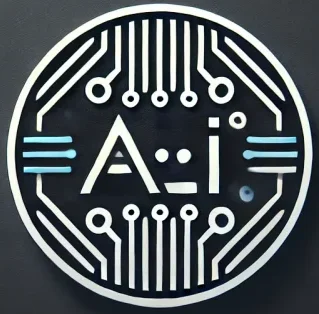### Embracing the Future: How Artificial Intelligence is Transforming Industries
In recent years, artificial intelligence (AI) has emerged as a key driver of innovation, revolutionizing multiple sectors from healthcare to finance, and beyond. As we advance further into the 21st century, the integration of AI technologies is not just an option but a necessity for businesses aiming to stay competitive in a rapidly evolving digital landscape. This article explores how AI is shaping various industries, the benefits it offers, and the challenges it poses.
#### The Impact of AI Across Different Sectors
1. **Healthcare**: AI in healthcare is a game changer. It enhances diagnostic accuracy, personalizes patient care, and streamlines administrative processes. Tools like IBM Watson are being used to assist in diagnosing diseases and recommending treatments, while startups are developing AI to predict patient deteriorations before they occur.
2. **Finance**: In finance, AI is used for algorithmic trading, fraud detection, and customer service optimization. AI systems analyze large volumes of trading data in real time to make predictions and execute trades at speeds no human can match. Moreover, chatbots and AI-driven interfaces improve customer experiences and reduce operational costs.
3. **Retail**: AI in retail transforms customer experiences and operational efficiencies. Through machine learning algorithms, retailers can predict purchasing behaviors, optimize inventory management, and provide personalized shopping experiences. AI-driven chatbots and virtual assistants are becoming commonplace, enhancing customer service and engagement.
4. **Manufacturing**: Smart factories are at the forefront of the fourth industrial revolution. AI-driven robots work alongside humans to enhance production efficiency and safety. Predictive maintenance, powered by AI, minimizes downtime by predicting equipment failures before they happen.
5. **Transportation**: Autonomous vehicles and AI-based logistic solutions are reshaping transportation. Companies like Tesla and Waymo are pioneering the development of self-driving cars, potentially reducing accidents caused by human error and optimizing traffic flow.
#### Benefits of Artificial Intelligence
– **Increased Efficiency**: AI automates routine tasks, speeding up processes and reducing human error.
– **Enhanced Decision Making**: With its ability to analyze vast amounts of data, AI supports better business decisions by providing deeper insights.
– **Cost Reduction**: Although initial implementation might be costly, over time AI reduces labor costs and optimizes resource allocation.
– **Improved Customer Experience**: AI personalizes customer interactions, making them more engaging and responsive.
#### Challenges of Implementing AI
– **Ethical Concerns**: Issues such as privacy, surveillance, and bias in AI algorithms are major concerns that need addressing.
– **Job Displacement**: AI may lead to job displacement in certain sectors as machines replace human roles.
– **High Initial Investment**: The cost of implementing AI can be prohibitive for small to medium enterprises (SMEs).
– **Complexity of Integration**: Integrating AI with existing systems can be challenging and requires technical expertise.
#### Future Trends in AI Technology
Looking ahead, AI is set to become even more integrated into our daily lives. Trends to watch include the rise of AI in cybersecurity, where it will be used to detect and respond to security threats more efficiently. Additionally, AI’s role in environmental sustainability is expanding, with projects focusing on everything from optimizing energy use in buildings to monitoring deforestation.
#### Conclusion
The transformative power of AI across various industries is undeniable. As technology continues to evolve, it promises even greater efficiency, decision-making capabilities, and economic benefits. However, navigating the challenges it presents will be crucial for realizing its full potential. Businesses and policymakers must collaborate to ensure that AI development is ethical, inclusive, and sustainable. Embracing AI is not merely about adopting new technology; it’s about moving forward into a promising, yet uncertain, future.
#### SEO Keywords: Artificial Intelligence, AI technology, AI in healthcare, AI in finance, smart factories, autonomous vehicles, AI trends, AI challenges, AI benefits.
By strategically incorporating these keywords, this article is optimized for search engines, making it more likely to be found by individuals seeking to understand the impact and importance of AI technology in today’s world.
